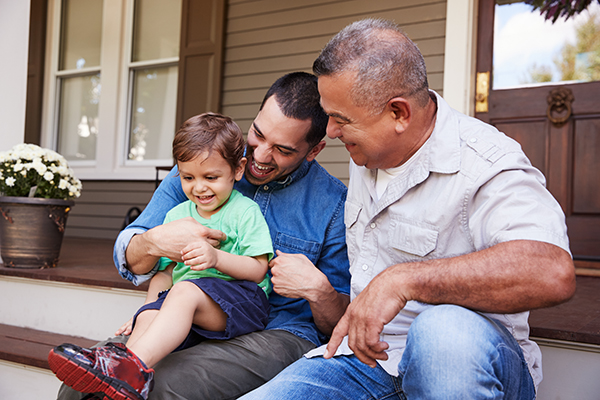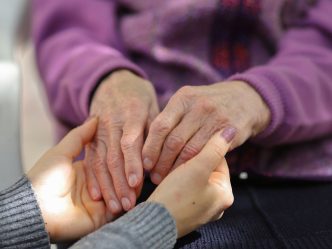Are you caring for your aging parents while also raising children? If so, then you are a member of an amazing group of people (mostly women) in their 40s and 50s called the Sandwich Generation. As someone providing care, financial and emotional support for extended family members, you work overtime to ensure that everyone in your family has the care they need.
While caring for family can bring a deep sense of purpose and satisfaction, the competing demands of career and family can also be challenging for sandwichers. According to a recent Pew Research Center study, a third of the Sandwich Generation reports feeling happy with their lives, while another third reports always feeling rushed.
“As the Sandwich Generation, you can be torn in different directions. For example, your parents may be sick or needing assistance but at the same time, your child might be having something at school that you want to be a part of. There are a lot of things going on around you that you feel the pressure to potentially take care of everything,” said Dr. Wanda Jirau-Rosaly, a geriatrician at the Augusta University Department of Internal Medicine.
Tips for sandwiched caregivers
Here are some simple strategies for lightening your load and reducing stress:
- Delegate tasks. Ask for help from a trusted network of family and friends.
- Don’t sweat the little stuff. Focus on the important tasks and try to let go of things that can wait.
- Dial up some help. Rely on services to help with transportation, meals and home care.
Finding balance
While coping with the competing demands of those around you, caring for yourself may seem like an unobtainable luxury. But finding balance in your life is crucial for both you and your family.
“If you’re feeling burned out or if you’re feeling run down, it’s time to take care of you so you can take care of others,” said Dr. Jirau-Rosaly. “For example, when you’re flying on an airplane, they tell you the first thing you do is put the oxygen on you and then you put it on your children because if you pass out, who is going to put it on your children?”
Self-care may be as simple as reading a book, taking a yoga class or getting coffee with a friend. It also means taking care of your health by eating right, getting enough sleep, exercising and socializing.
“Whatever it is that you like to do, just make sure you take the time to do that for you,” said Dr. Jirau-Rosaly.
We know you’re busy, that’s why we’re bringing world-class healthcare to your neighborhood.
Augusta University Care Centers are right in your community with teams of skilled primary care and specialty care doctors. Make an appointment at our Family Medicine clinic or at one of our care centers today, visit augustahealth.org, or call 706-721-2273 (CARE).
Sources:
Pew Research Center: The Sandwich Generation





